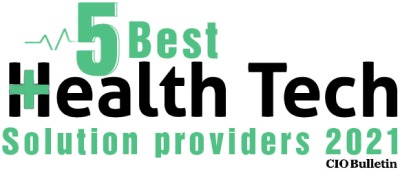With the CDC’s newest reports indicating the prevalence in Autism has risen to 1:36, health plans need to consider that Applied Behavior Analysis and related therapies are just the tip of the iceberg in terms of care costs associated with Autism. To effectively treat Autism, there needs to be an emphasis on holistic care for the family unit.
By prioritizing family well-being, taking Social Determinants and the mental health of each family member into consideration, the health plan has the opportunity to decrease long-term care costs for the child with Autism and their related caregivers.
Financial, Emotional Stress, and Family Fatigue
In addition to the increased care needs of having a child with Autism, the pressure of following behavior intervention plans, community stigmas, fear for the safety of the child and often, others in their presence, parents are also concerned with the increased costs of raising a child with Autism including lost wages related to increased demands on one or both parents.
- Mothers of children with ASD earn 56% less than mothers whose children have no health conditions and 35% less than mothers of children with other disabilities or disorders.
- Families with a child with ASD are 1.5 times more likely to experience food insecurity due to financial strain.
- 12.5% of parents with a child with ASD have a diagnosis of depression. Odds of depression are 2.9 times greater in mothers of children with ASD than in mothers of children without ASD. Parental depression increases as child age increases
- Stress of parents of children with ASD reaches clinically significant levels in 77% of cases.
With most of the time and energy dedicated to the child with Autism, unintentionally, their neurotypical siblings are often the afterthought. Studies have shown that these siblings have significantly worse internalizing behavior problems, psychological functioning, negative relationships and impairments in social functioning, and increased anxiety when compared to siblings of typically developing children.
As overall family stress increases, so do associated care costs due to additional diagnoses for family members such as anxiety, depression, obesity and the potential for use of alternative/unproven treatment options and/or dangerous coping mechanisms (ex. substance use).
Holistic Help for the Family Unit
As family functioning improves, caregivers show an increased ability to successfully care for the child with autism, implement procedures with efficacy, and maintain and generalize skills learned in therapy.
Parents of children with Autism perceive care to be less comprehensive, coordinated and family centered than they wish and report to be less content with their care than parents of children with other diagnoses. Health plans can be at the forefront of improving quality of life for the family by initiating some key elements of member engagement:
- Using a Family Navigation model to help families access services by facilitating service coordination, mentorship, and advocacy training
- Assessment of parental stress (ex. PSI-4 or SIPA) to identify case management supports
- Collecting demographics for Social Determinants of Health and using these to identify applicable resources
Support guides for Autism - Mindfulness, meditation, and self-care apps for parents and neurotypical siblings
- Approaches to family, physical, financial, emotional health
- Marriage and relationship coping skills and resources
For more information on Member Engagement, please contact us.
References
- Cohrs, A.C., Leslie, D.L. Depression in Parents of Children Diagnosed with Autism Spectrum Disorder: A Claims-Based Analysis. J Autism Dev Disord 47, 1416–1422 (2017). https://doi.org/10.1007/s10803-017-3063-y
- Kiami S. R., Goodgold S. (2017). Support needs coping strategies as predictors of stress level among mothers of children with autism spectrum disorder. Autism Res. Treat. 2017:8685950. 10.1155/2017/8685950
- Karpur, A., Vasudevan, V., Lello, A., Frazier, T. W., & Shih, A. (2021). Food insecurity in the households of children with autism spectrum disorders and intellectual disabilities in the United States: Analysis of the National Survey of Children’s Health Data 2016–2018. Autism, 25(8), 2400–2411. https://doi.org/10.1177/13623613211019159
- Zuleyha Cidav, Steven C. Marcus, David S. Mandell; Implications of Childhood Autism for Parental Employment and Earnings. Pediatrics April 2012; 129 (4): 617–623. 10.1542/peds.2011-2700











